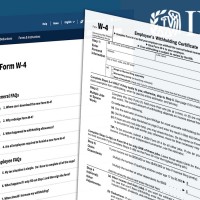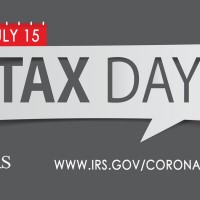It's Not Too Early to Start Thinking About Your 2020 Tax Return
- Details
- Written by Remar Sutton
- Category: Articles

There are typically some tax changes each year. 2020 has more than usual. The Coronavirus Aid, Relief, and Economic Security (CARES) Act, the Setting Every Community Up for Retirement Enhancement (SECURE) Act, government funding bills, and other actions have made tax changes. Here are a few of those changes.
There are typically some tax changes each year. 2020 has more than usual.
Deductions for Charitable Contributions
Charitable contributions have been deductible only if you itemized. With the 2017 tax reform law almost doubling the standard deduction, fewer people itemized and charitable contributions by individuals dropped. The CARES Act expanded the options for deducting charitable contributions.
The universal deduction allows taxpayers to deduct up to $300 for charitable contributions without having to itemize. To be deductible, these contributions must be made in cash (including checks and credit card payments) and given to a 501(c)(3) public charity. Donations to non-operating private foundations, support organizations, or donor-advised funds can not be included in this deduction. This deduction is what's called a universal above-the-line deduction. It will be listed as an adjustment to income on your taxes resulting in a reduction of your adjusted gross income.
If you itemize, the amount you can deduct for cash charitable contributions is limited to 60% of your adjusted gross income. The CARES Act lifts that limitation for 2020 only. Note that it must be cash and made to a qualifying organization. Contributions of non-cash property do not qualify but can still be claimed within the normal limits.
Retirement Plans Impacts
Required minimum distributions (RMDs) are the amount of money that must be withdrawn from various types of retirement accounts when a participant reaches a certain age. Beginning in 2020, the age for beginning RMDs has been raised to 72 (from 70 ½). For 2020 only, no distribution is required because the CARES Act suspends RMDs.
Contributions to traditional IRAs can now be made after age 70 ½ as the age limit has been eliminated. Typically, a withdrawal from an IRA or 401(k) before age 59 ½ incurs a 10% penalty. Now, parents having a baby or adopting a child can withdraw up to $5000 without paying the penalty.
Contributions to a retirement account usually can not exceed your compensation. Yet fellowships, stipends, and similar payments that graduate and post-doctoral students receive are not considered compensation. Beginning in 2020, these amounts will be treated as compensation for the purpose of making IRA contributions.
Some contribution limits and deduction phaseouts have changed for 2020. They are:
-
Maximum 401(k), 403(b), and 457 contribution is $19,500. People over 50 can contribute an additional $6,500.
-
Maximum SIMPLE IRA contribution is $13,500. Over 50 can contribute an additional $3000.
-
Traditional and Roth IRA contribution limits remain at $6,000. People over 50 can contribute an additional $1000.
-
Roth IRA contributions phase out at adjusted gross incomes of $196,000 to $206,000 for couples and $124,000 to $139,000 for singles.
-
Traditional IRAs deductions phase out at adjusted gross incomes of $104,000 to $124,000 for couples and $65,000 to $75,000 for singles.
Stimulus Checks
The CARES Act provided $1200 payments (plus $500 for each child under 17) to most Americans. These stimulus payments (also called economic impact payments) are an advance of a special tax credit for 2020. On your tax return, you'll determine what your credit is. The credit will probably equal the payment for most people. If your payment was less than your credit, you can claim the balance on your return. If your payment was more than your credit, you will not have to pay back any of the payment.
This link from the IRS provides more information about the economic impact payments.
For more information about other tax changes for 2020 check out these articles from Kiplinger.com and Investopedia.














